Webinaires sur la cybercriminalité
 Upcoming webinars
Upcoming webinars
More webinars are planned in the coming months. Details will follow.
 Webinaires passés
Webinaires passés
The International Association of Prosecutors, and the GLACY+ and Octopus projects of the Council of Europe successfully co-organised a series of five thematic webinars to exchange views and share experiences on the existing and new forms of cooperation for effective access to electronic evidence, as well as legal tools proposed by the 2nd Additional Protocol to the Convention on Cybercrime (Budapest Convention).
Based on the outcomes of this series, International Association of Prosecutors, and the GLACY-e and Octopus projects of the Council of Europe will continue to provide a dialogue platform for prosecutors on the possible practical implementation of the Second Additional Protocol. This will be done in the form of a new series of webinars, focusing on the implications for prosecutors on three main themes:
- Direct cooperation with providers and entities in other Parties;
- Judicial international cooperation tools ;
- Co-operation in absence of applicable international agreements.
For more information regarding these webinars, you may consult the dedicated webpage and/or reach out to cybercrime.events@coe.int.

Series of webinars on addressing xenophobia and racism committed online
To mark the 20th anniversary since the opening for signature of the First Additional Protocol while recognising the complex nature and importance of the topic, a series of activities are being organised to support countries in the action against online xenophobia and racism – and a series of webinars on xenophobia and racism online is planned.
15 December 2022, 14:00-16:15 CET
Webinar 1: Webinar on good practices and challenges in addressing xenophobia and racism committed online
Participation in the webinar was open to representatives from Parties to the Convention on Cybercrime and Observers to the Cybercrime Convention Committee, but also other specially invited stakeholders.
28 February 2023, 14h00–16h30 CET
Webinar 2: Strengthening the capacities of criminal justice authorities on addressing xenophobia and racism committed online
The webinar welcomed a wide range of participants with interest and experience in tackling online racism and xenophobia. This includes representatives from States Parties to the Convention on Cybercrime and Observers to the Cybercrime Convention Committee, but also other stakeholders.
The webinar was be held remotely in English via the video-conferencing platform Zoom, provided by the Council of Europe. Registration so as to receive the link to attend the second webinar is now closed.
For more information regarding these webinars, you may consult the dedicated webpage and/or reach out to cybercrime.events@coe.int.

Cours regional de formation des forces de l'ordre pour les enquêtes sur les attaques par ransomware
La cybercriminalité - c'est-à-dire les infractions commises contre et au moyen de systèmes informatiques - est devenue une menace importante pour les droits fondamentaux, la démocratie et l'État de droit, ainsi que pour la paix et la stabilité internationales, et a un impact social et économique majeur.
Par conséquent, la cybercriminalité, phénomène transnational par nature, continue de susciter un grand intérêt de la part des malfaiteurs et « prend la place » d'autres infractions nationales et crée un énorme impact économique par la fraude, le phishing et le ransomware.
La pandémie a non seulement accru la dépendance à l'égard des technologies de l'information et de la communication et accéléré la transformation numérique des sociétés, mais elle a également offert aux criminels de nouvelles possibilités d'exploitation, sous la forme de la diffusion de phishing et de logiciels malveillants, d'attaques par ransomware (y compris contre des établissements de santé), de systèmes de fraude, de désinformation ou d'une augmentation de la violence sexuelle en ligne à l`égard des enfants . Il ne s'agit pas nécessairement de nouvelles formes de cybercriminalité, mais l'objectif est peut-être un peu différent de celui d'avant la pandémie, en particulier parce qu'il vise les infrastructures de soins de santé, les médicaments, les équipements médicaux, les institutions financières ou les systèmes d'information publics.
L'objectif de ce cours de formation est de fournir aux représentants de LEA des pays prioritaires des projets suivants : CyberSud, CyberEast, GLACY+, iPROCEEDS-2 et Octopus une compréhension de la dimension internationale et de l'impact des attaques par ransomware. En outre, les participants partageront les meilleures pratiques en matière d'enquêtes criminelles sur les attaques par ransomware, les outils juridiques et techniques à utiliser, ainsi que les différentes techniques d'enquête.
L'activité aura lieu en ligne en utilisant une plateforme de vidéoconférence. La langue officielle de l'événement sera l'anglais.
3-4 mai 2022
10:00 - 13:30 heure de Bucarest
Virgil Spiridon | Catalin Zetu | Catalin Alexandru Cosoi
Cette formation sera particulièrement utile pour les représentants des forces de l'ordre des pays prioritaires des projets C-PROC.

Series of multistakeholder webinars on the Second Additional Protocol to the Budapest Convention in LATAM countries
The Octopus project of the Council of Europe in cooperation with the Joint EU/CoE GLACY+ project are organising a series of multistakeholder webinars / roundtables in the Latin America region with the aim to raise awareness about the benefits of the Second Additional Protocol, and explain its provisions to civil society, data protection experts amongst other stakeholders. This is envisaged to support acceptance of the Protocol in the region and will facilitate internal accession procedures in respective countries with a view of using the toolkit offered by the 2nd Additional protocol to the Budapest Convention once it is adopted and opened for signature.
Series of Webinars on the Introduction ot the Second Additional Protocol to the Budapest Convention on enhanced cooperation and disclosure of electronic evidence
5 November 2021 | 4 hours
- Webinar 1 - focused on Argentina, Brazil, Chile, Paraguay, Uruguay
8 February 2022
- Webinar 2 - focused on Colombia, Ecuador, Mexico, Peru
24 February 2022
- Webinar 3 - focused on Costa Rica, Dominican Republic, El Salvador, Guatemala, Panama
24 June 2022
- Final Roundtable: In depth discussions on the tools of the Second Additional Protocol - interested representatives of the participant countries in the abovementioned webinars
Participants will be representatives of the criminal justice authorities (prosecutors, judges, law enforcement); legislators, authorities of the executive power with functions related to international cooperation in criminal matters, the prosecution of cybercrime; agencies responsible for the protection of personal data; NGOs involved in the protection of personal data and the assistance to victims of cybercrime; industry.
Find out more on our dedicated webpage
The Council of Europe and the APWG (Anti-phishing Working Group) have been collaborating for many years to strengthen the criminal justice response to cybercrime and raise awareness among relevant stakeholders and the public on related matters.
The new and emerging technological tools available to cyber criminals introduce further exacerbate existing issues related to retaining and accessing electronic evidence, admissibility of electronic evidence, territoriality and jurisdiction, and international and public-private cooperation. As such, they present a significant challenge to the effective investigation and prosecution of cybercrime.
This webinar, jointly organised by the GLACY+ Project and APWG.EU, aims to highlight avenues for international collaboration to effectively combat cybercrime committed using emerging technologies and to harness the potential of these technologies to assist the work of criminal justice authorities, and provide a platform for exchange of best practices and resources.
The event will take place online via Bluejeans Events platform. The webinar will be held in English and the discussion will be recorded.
28 April 2022
16:00-18:00 CEST
This webinar will be particularly useful for policymakers responsible for cybercrime policies and legislation; representatives in charge of cooperation with LEAs; criminal justice practitioners; and representatives of the private sector. Please register here before 26 April 2022, 13h00 GMT.
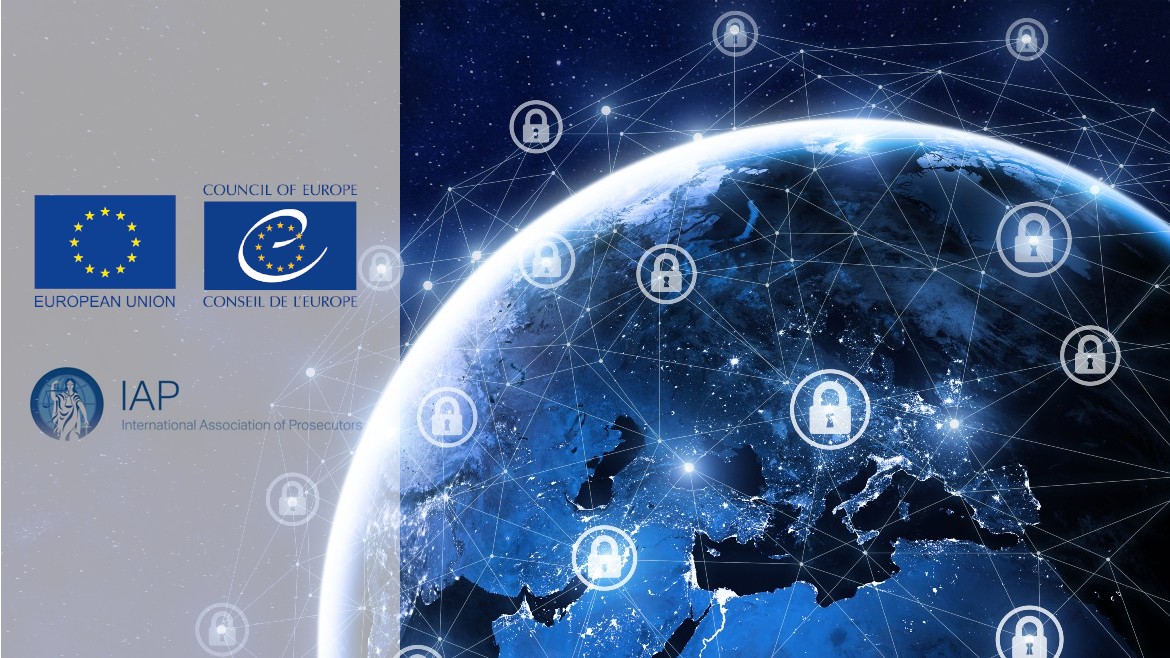
Enhanced Cooperation and Disclosure of Electronic Evidence
Cybercrime is a threat to human rights, democracy and the rule of law. Criminal justice authorities are confronted with a continuous increase in the scale and quantity of cybercrime and other offences involving electronic evidence, with associated technical challenges, with issues related to cloud computing and jurisdiction, including links to organised crime, and with challenges facing the system of mutual legal assistance. The COVID-19 pandemic is accompanied by further proliferation of cybercrime.
This underlines the need for effective criminal justice action, making use of frameworks such as the Budapest Convention on Cybercrime and additional solutions, including those being developed for the 2nd Additional Protocol to permit instant cooperation in urgent and emergency situations subject to human rights and rule of law safeguards.
Read more and register here
[TBD]
Criminal justice authorities from countries of Europe, Africa, the Americas and Asia Pacific
2h each
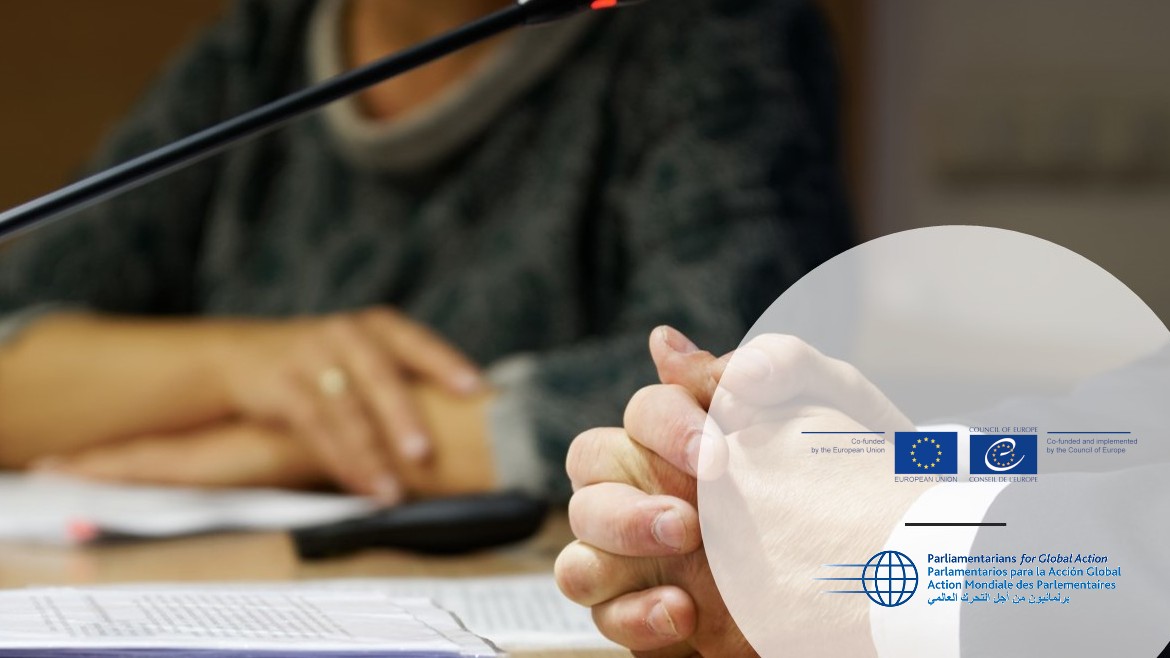
Regional Parliamentary Webinars to Promote Universality and Implementation of the Budapest Convention on Cybercrime
The formula of the Budapest Convention as the common standard backed up by the Cybercrime Convention Committee (T-CY) and capacity building through Cybercrime Programme Office (C-PROC) continues to ensure impact. With the future Second Additional Protocol on enhanced cooperation and disclosure of electronic evidence, the mechanism of the Budapest Convention is likely to remain the most relevant international standard for years to come.
Parliamentarians, both as advocates and as lawmakers, fully mobilized, can make a substantive and decisive impact in promoting universality and implementation of the Budapest Convention on Cybercrime and its First Additional Protocol on Xenophobia and Racism, as well as generating wider awareness of the forthcoming Second Additional Protocol, accompanied by necessary safeguards to ensure adequate privacy and data protections, as appropriate.
Find out more on our dedicated webpage of the regional webinars.
Parliamentarians and other relevant policy makers from countries in Africa, the Caribbean region, Asia/Pacific and Latin America
2h each
The concept of cyberviolence covers an extreme breadth of issues (harassment, violation of privacy, sexual abuse and exploitation, bias crimes against social groups or communities, direct threats and physical violence, forms of cybercrime). Some of them – such as cyberbullying, sexting, online child sexual abuse and exploitation – will be discussed during the Regional Conference.
With the increasing number of incidences where these crimes have an element of cybercrime or electronic evidence, there is a growing need for judges and prosecutors to understand the nature of these crimes and also to be aware of the legislation and international cooperation instruments available to deal with the respective cases, as well as the implications of dealing with electronic evidence. Some of the international instruments, such as the Budapest Convention on Cybercrime, the Lanzarote Convention on the Protection of Children against Sexual Exploitation and Sexual Abuse, or the Istanbul Convention on Violence against Women, provide solutions and answers to these challenges and can serve as a guide for any country wishing to address the phenomenon of cyber-violence and electronic evidence.
TBC
English, Spanish, French
Registration upon invitation
La cybercriminalité est un phénomène transnational par nature et nécessite une coopération internationale rapide et efficace entre les autorités de justice pénale des États pour qualifier les infractions, identifier les pouvoirs procéduraux à utiliser et les juridictions qui s'appliquent aux différentes activités illégales. En outre, l'accès rapide aux données stockées pour une durée limitée dans l'infrastructure informatique repose sur les outils juridiques internationaux et nationaux dont disposent les pays pour coopérer avec le secteur privé.
L'utilisation frauduleuse des technologies de l'information par les délinquants, non seulement dans le cadre d'activités de cybercriminalité, pose de grands défis aux autorités de justice pénale et à l'État de droit. Par conséquent, avec l'augmentation des infractions impliquant des ordinateurs et des preuves électroniques, il est essentiel de prendre des contre-mesures efficaces pour renforcer la coopération judiciaire internationale dans les affaires de cybercriminalité de manière cohérente et harmonisée. Eurojust et le Conseil de l'Europe ont convenu d'unir leurs forces pour s'attaquer à ce problème, inter alia par le biais du renforcement des capacités.
Organisé conjointement par Eurojust et le Conseil de l'Europe (C-PROC), l'événement vise à présenter les défis de la coopération opérationnelle et la manière dont ils peuvent être abordés par la mise en place d'ECE ou d'enquêtes conjointes lorsque les conditions d'une ECE ne sont pas réunies. En outre, l'événement devrait présenter les nouveaux instruments juridiques offerts par le 2ème protocole additionnel à la Convention de Budapest pour une coopération internationale renforcée entre les Etats et comment ils complètent les instruments existants. Les pays seront donc invités à exprimer les avantages et les difficultés potentielles de leur mise en œuvre au niveau national.
Pour en savoir plus, consultez notre page web consacrée aux webinaires régionaux.
Orateurs
- Ladislav Hamran, Président du Collège d'Eurojust
- Virgil Spiridon, Chef d'Opérations, CoE Bureau de programme sur la cybercriminalité (C-PROC)
- Tania Schroeter, Chef d'unité adjoint, DG JUST, Commission européenne
- Slawomir Buczma, Expert national détaché (juge) auprès du secrétariat du réseau des équipes communes d'enquête, Eurojust
- Baudoin Thouvenot, Membre national pour la France auprès d'Eurojust
- Myroslava Krasnoborova, Procureur de liaison pour l'Ukraine auprès d'Eurojust
- Kenneth Harris, Département de la justice des États-Unis, représentant T-CY
Participants
- Représentants de ses services répressifs chargés des enquêtes sur la cybercriminalité, du ministère public et de l'autorité centrale - responsable de l'entraide dans les affaires de cybercriminalité et concernant les preuves électroniques provenant d'environ 42 pays.
- Procureurs de liaison des pays participants représentés à Eurojust.
Durée et langue
- 3 h | anglais, francais, espagnol, portugais
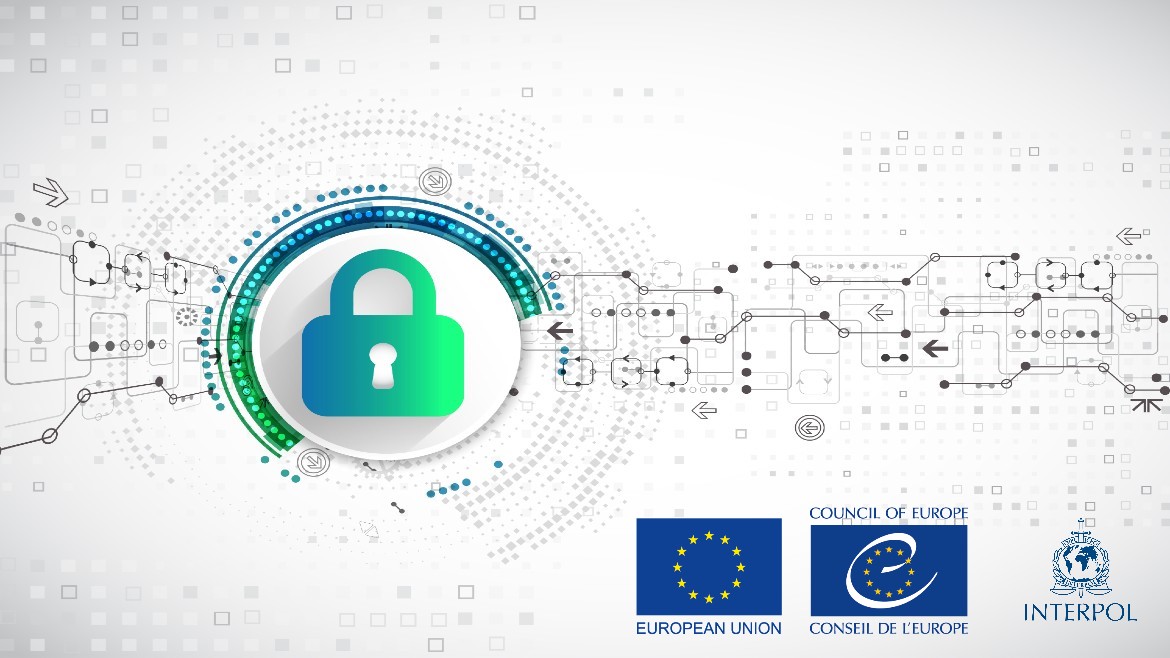
Seminario técnico en línea de INTERPOL: Cripto para las autoridades de justicia penal
La criptografía es uno de los principales facilitadores tecnológicos de la tecnología tan ampliamente utilizada por el público. Sin esta herramienta, la poca confianza en Internet habría impedido que la red creciera tanto. Sin embargo, el conocimiento de la criptografía no se ha cubierto lo suficiente en el contexto de la capacitación policial.
La capacitación tiene como objetivo proporcionar el conocimiento y la comprensión conceptual de la criptografía necesarios para los funcionarios de la autoridad de justicia penal, incluidos conceptos criptográficos y criptografía aplicada.
Obtenga más información y regístrese aquí:
-
a confirmar
Los participantes recomendados incluirán:
- Agentes encargados de hacer cumplir la ley cuyo trabajo diario implica delitos cibernéticos y pruebas electrónicas
- Fiscales y jueces que quieran aprender y participar en este tema
- Instructores de instituciones gubernamentales responsables de la capacitación sobre el tema
1h 30 cada seminario
Bullying is a worldwide problem, with negative and sometimes fatal consequences. The increased use of information and communication technologies (ICTs) has taken bullying online and there is a blurring of the line between bullying offline and cyber-bullying. In addition, the anonymity of the internet has scaled up the dimension of violence seen in bullying, and acts of cyber-bullying increasingly fall into the realm of criminal offences which necessitate the involvement of law enforcement.
The purpose of this webinar is to shed light on the role of law enforcement in the fight against cyber-bullying. This webinar will bring together speakers working on cyber-bullying from different angles: prevention initiatives, legal measures and law enforcement investigations, child protection mechanisms and psychological support. In particular, this webinar will provide guidance to law enforcement and other relevant actors to identify cases of cyberbullying in need of a criminal investigation, to be aware of existing prevention measures, and to be mindful of the psychological aspects relating to both victims and bullies.
Elizabeth MILOVIDOV, Council of Europe Expert | Susanna GREIJER, Council of Europe Expert
Andrea BRADLEY, Council of Europe Expert | Nina VAARANEN-VALKONEN, Council of Europe Expert
Officials and policy makers responsible for protection of children against all forms of violence, including cyberbullying, as well as human rights specialists, criminal justice authorities (judges, prosecutors, law enforcement agencies), non-governmental organisations and researchers/academia with an interest in the subject.
2h 30 min
As proposed in the Council of Europe Cybercrime Convention Committee (T-CY) Mapping study on cyberviolence: “Cyberviolence is the use of computer systems to cause, facilitate, or threaten violence against individuals that results in, or is likely to result in, physical, sexual, psychological or economic harm or suffering and may include the exploitation of the individual’s circumstances, characteristics or vulnerabilities.”
The purpose of this webinar is to discuss current state of hate speech expressed through the use of information and communications technology, and to identify effective and balanced ways in which restrictive measures can address it.
Menno ETTEMA | Albin DEARING | Katrin NYMAN METCALF
Officials and policy makers responsible for hate spreech, as well as human rights specialists, criminal justice authorities (judges, prosecutors, law enforcement agencies), non-governmental organisations and researchers/academia with an interest in the subject
1h 30 min (45' presentations and dedicated questions + 45' general discussions)

INTERPOL webinaires techniques: Crypto pour les autorités de justice pénale
La cryptographie est un outil habilitant essentiel permettant à la technologie de l’information d’être si largement accueillie par le public. Sans cet outil, la faible confiance en Internet aurait empêché le développement considérable du réseau. Cependant, le domaine de la cryptographie n’a pas été traité suffisamment pendant la formation des policiers.
La formation vise à fournir des connaissances et une compréhension conceptuelle de la cryptographie nécessaire aux responsables de l'autorité de justice pénale, notamment : essentiels du hachage et cryptographie, cryptographie symétrique, cryptographie asymétrique, confiance en Internet: certificats numériques, fondamentaux des crypto-monnaies.
En savoir plus et s'inscrire ici :
à confirmer
fonctionnaires représentant les autorités de justice pénale (agents de police, procureurs, juges et autres professionnels, formateurs d'institutions gouvernementales responsables de la formation sur le même sujet)
1h 30 chacun
Since onset of the COVID-19 global pandemic, majority of affected societies had to adjust to living and working online, safe, thus making free and uninterrupted access to information and communication technology more important than ever before. Naturally, this shift has brought questions and concerns related but not limited to privacy and security of such communications.
The purpose of the webinar is to provide a practical and down-to-earth discussion about the current state of human rights safeguards and guarantees applicable to state policies, regulations and measures to ensure security of cyberspace, against the background of COVID-19 pandemic.
Katrin NYMAN METCALF | Marko JURIC | Eve HUNTER
Officials and policymakers responsible for cybercrime and cybersecurity, as well as human rights specialists, criminal justice authorities (judges, prosecutors, law enforcement agencies), non-governmental organisations and researchers/academia with an interest in the subject.
2h (1h presentations and dedicated questions + 1h general discussions)
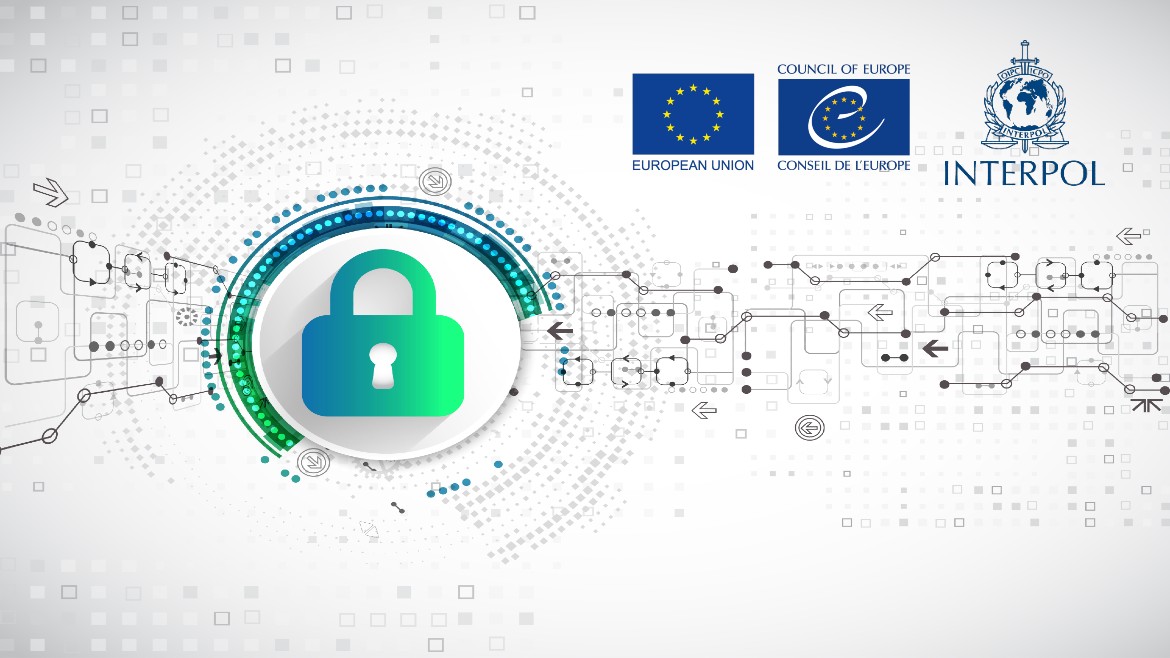
INTERPOL Technical Webinars: Crypto for Criminal Justice Authorities
Cryptography is the one of the core technological enabler of the information technology being so widely received by the public. Without it, the little trust in the Internet would have prevented the network to grow so large. However, the knowledge of cryptography has not been covered enough in the context of the law enforcement training.
The training aims to provide knowledge and conceptual understanding of cryptography necessary for the criminal justice authority officials, including: Hash and crypto essentials; Symmetric cryptography; Asymmetric cryptography; Trust in Internet - digital certificates; Fundamentals of Crypto-currencies
Read more and register here
Dong Uk KIM | Alvaro ORTIGOSA | Carlos PIMENTEL | Belhassen ZOUARI | Mark van STAALDUINEN |
Officials from criminal justice authorities (law enforcement officers, prosecutors, judges and others, instructors of governmental institutions responsible for the training on the same topic
1h 30 each
The purpose of this webinar is to discuss in depth cyberviolence against women and girls from the perspective of relevant topics that are inherently connected to the use of information and communications technology, and to incentivise countries in the Eastern Partnership region to ratify the Istanbul Convention.
Johanna NELLES | Carolina LASEN DIAZ | Artur DEGTEARIOV | Lela AKIASHVILI
Officials and policy makers responsible for cybercrime and cybersecurity, as well as violence against women and domestic violence, criminal justice authorities (judges, prosecutors, law enforcement agencies), non-governmental organisations and researchers/academia with an interest in the subject
1h30' (55' presentations and dedicated questions + 35' general discussions)
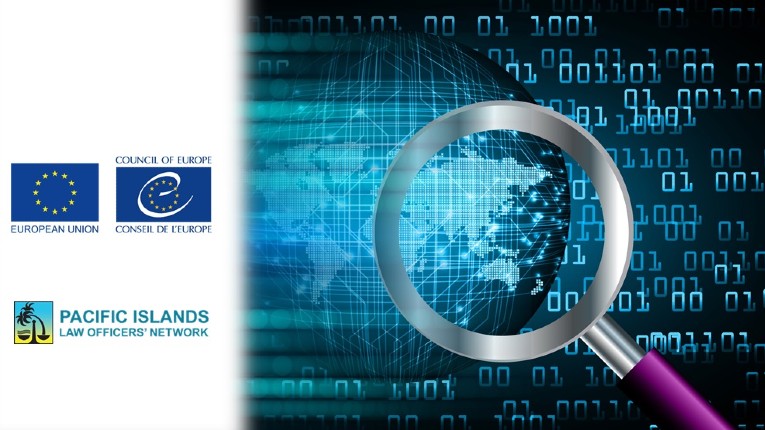
PILON Week Webinar – The effects of COVID-19 on cybercrime in the Pacific
This regional workshop organised by the PILON Cybercrime Working Group will be dedicated to tackle the current cybercrime challenges in the COVID-19 context in the region and encourage the sharing of experiences and best practices on matters related to cybercrime and electronic evidence.
Jung Kee YOU | Patricia FEMIA | Virgil SPIRIDON
Cybercrime policy makers, criminal justice and law enforcement professionals from PILON member countries
1h30
Participants will be up-to-date and will have shared their views on current proposals on solutions aimed at more effective and efficient access to electronic evidence, including through the future 2nd Additional Protocol to the Budapest Convention.
Cheol-kyu HWANG | Alexander SEGER | Marcos SALT (TBC) | Esther GEORGE | Ioana ALBANI
Judiciary and prosecutors from countries of Europe, Africa, the Americas and Asia Pacific
2h
Cooperation between criminal justice authorities and the private sector, in particular service providers, is essential to protect societies against crime.
The webinar aims to highlight the challenges encountered so far in putting in place strong and reliable collaboration channels between the criminal justice sector and international service providers, and to provide an overview of possible solutions to be considered next.
Alexander SEGER | Foy SHIVER | Richard LEANING | Facebook | INTERPOL | Chile rep
Officials from criminal justice authorities only (police, prosecutors and others)
2h
INTERPOL: Technical webinars for criminal justice officials (E-FIRST)
This series of three webinars is organized as part of the E-FIRST Course for law enforcement from 14 to 30 September 2020 provided under the framework of GLACY+ Project. The webinars will also be open to observers who are not participating in the course.
The real-time webinars cover three important topics selected from the E-FIRST course: Crime Scene and Live Data, Mobile Network and Devices, and Virtual Asset Seizure.
Dong Uk KIM | Carlota URRUELA | Fabio BRUNO | Mike O’CALLAGHAN | Christopher CHURCH | Vincent DANJEAN | Sandi PIRC | Sang-Eun Christine LEE
Officials from criminal justice authorities only (police, prosecutors and others)
1h each
This series of webinars, hosted by the European Union and the Council of Europe, aims to facilitate the new UN process through the sharing of experience between criminal justice practitioners, who are to be the beneficiaries of a future UN treaty on cybercrime, and foreign policy experts, who will be involved in the negotiation of this treaty.
Camino KAVANAH | Claudio PEGUERO | Marcos SALT | Irma Llano PEREIRA | Emilia NAVAS APARICIO
Foreign affairs officials and cybercrime and criminal justice experts from national authorities only
1h45'
This series of webinars, hosted by the European Union and the Council of Europe, aims to facilitate the new UN process through the sharing of experience between criminal justice practitioners, who are to be the beneficiaries of a future UN treaty on cybercrime, and foreign policy experts, who will be involved in the negotiation of this treaty.
François DELERUE | Papa Assane TOURE | Alexander SEGER | Sidi RALIOU | Hamza ES SAID | Issa Saferiba FAYAMA
Foreign affairs officials and cybercrime and criminal justice experts from national authorities only
1h45'
The purpose of the webinar is to present the international standards on collection and handling of e-evidence as covered by Electronic Evidence Guide and Standard Operating Procedures (SOP) developed by international experts under the framework of capacity building projects implemented by the Council of Europe.
Moreover, the training programmes developed by European Cybercrime Training and Education Group (ECTEG) and Interpol will be introduced as to emphasis the international best practices to facilitate the reinforcement of capacities of Law Enforcement agencies on digital evidence.
Victor VOELZOW | Carlota URRUELA | Claude EL-WETER | Fernando FERNANDEZ LAZARO | Virgil SPIRIDON (moderator)
Officials from national authorities (judiciary, prosecutors, law enforcement agencies and others) dealing with electronic evidence
2h
This series of webinars, hosted by the European Union and the Council of Europe, aims to facilitate the new UN process through the sharing of experience between criminal justice practitioners, who are to be the beneficiaries of a future UN treaty on cybercrime, and foreign policy experts, who will be involved in the negotiation of this treaty.
Patryk PAWLAK | Jayantha FERNANDO | Alexander SEGER | Markk PERETE | Leotrina MACOMBER
Foreign affairs officials and cybercrime and criminal justice experts from national authorities only
1h45'
Le but de ce webinaire est de présenter le sujet de la cyberviolence du point de vue de sujets pertinents qui sont intrinsèquement liés à l'utilisation des technologies de l'information et des communications.
Bien qu'il ne soit pas exhaustif en termes de portée et de couverture des formes respectives de cyberviolence, ce webinaire sera une introduction à la série de webinaires dédiés qui se concentrera davantage sur des thèmes et des domaines spécifiques discutés pendant l'événement.
Betty SHAVE | Katarzyna WOLSKA-WRONA | Menno ETTEMA | Giorgi JOKHADZE (Moderator)
Fonctionnaires des décideurs politiques responsables de la cybercriminalité et de la cybersécurité, autorités de justice pénale (juges, procureurs, forces de l'ordre), personnel des CSIRT nationaux, ainsi que des organisations non gouvernementales et des chercheurs / universitaires intéressés par le sujet.
1h30' (50' présentations et questions + 40' discussions)
Les faits montrent qu'Internet est de plus en plus utilisé par les organisations terroristes comme plate-forme de communication pour faciliter les contacts entre les membres, diffuser du matériel de propagande et transmettre des informations sur les actes de terrorisme planifiés, ainsi que leur soutien matériel.
Ce webinaire abordera la réponse de la justice pénale au terrorisme cybernétique, les normes internationales dans ce domaine, ainsi que les bonnes pratiques et les domaines problématiques pour enquêter sur les attaques terroristes et assurer une réponse coordonnée.
Fernando PUERTO MENDOZA | Balques AL RADWAN | Philippe VAN LINTHOUT | Jan KERKHOFS | Giulia LUCCHESE | Alexander SEGER (Moderator)
Fonctionnaires des autorités nationales et pénales et décideurs politiques impliqués dans la cybercriminalité et la lutte contre le terrorisme
2h
Le but de ce webinaire est d'identifier les menaces actuelles contre les systèmes d'information critiques qui sont utilisés pour organiser, conduire ou soutenir le processus électoral.
Des informations seront fournies sur les aspects juridiques, organisationnels, techniques et autres, en signalant les lacunes actuelles et en faisant des recommandations pour garantir davantage la protection et la dissuasion contre de telles attaques.
Andrii OKAEVICH | Merle MAIGRE | Matthew MOORHEAD | Giorgi JOKHADZE (Moderator)
Fonctionnaires des décideurs politiques responsables de la cybercriminalité et de la cybersécurité, autorités de justice pénale (juges, procureurs, forces de l'ordre), personnel des CSIRT nationaux, ainsi que des chercheurs / universitaires intéressés par le sujet.
50’ présentations + 40’ discussions
La pandémie de COVID-19 affecte les individus et les sociétés et, par conséquent, de nombreux domaines dépendent plus que jamais de la technologie. Les criminels voient également la possibilité de s'adapter aux changements qui se produisent dans la société et en relation avec leurs victimes potentielles et, comme la pandémie n'a pas disparu du jour au lendemain, ils ont également déplacé leurs activités criminelles vers le monde en ligne.
Les enfants sont également vulnérables aux menaces croissantes en ligne qui sont plus présentes sur Internet, étant donné que les cours scolaires sont également dispensés à distance.
Virgil SPIRIDON| Ovidiu MĂJINĂ| Cathal DELANEY| Guillermo GALARZA| İbrahim ÖZDEMİR
Fonctionnaires des autorités nationales et du secteur de la justice pénale impliqués dans la prévention et la lutte contre l'exploitation et les abus sexuels des enfants sur Internet
max. 100 participants
1h15' présentations + 45' discussions
Le webinaire fournit des informations pour comprendre Modi Operandi des délits financiers liés à COVID-19 avec l'introduction de cas transnationaux coordonnés par l'unité des crimes financiers d'INTERPOL.
Muhammad IMRAN | Jung Kee YOU
Personnel chargé de l'application des lois et de la justice pénale en particulier
1h30'
Le but de ce webinaire est d'identifier les moyens d'améliorer la coopération entre les autorités de justice pénale et les acteurs de la cybersécurité, notamment en identifiant les rôles et responsabilités mutuels dans les enquêtes sur la cybercriminalité.
Le webinaire présentera les bonnes pratiques adoptées dans l'UE, telles qu'analysées par l'Agence de l'Union européenne pour la cybersécurité, ENISA.
Silvia PORTESI | Alexandra MICHOTA | Sachindra REECHAYE | Giorgi JOKHADZE
Personnel de justice pénale et CERT / CSIRT en particulier
45' présentations + 45' discussions
Le webinaire vise à donner un aperçu des défis auxquels sont confrontées les autorités de justice pénale en Amérique latine et dans les Caraïbes, en faisant référence à la législation et aux politiques en matière de cybercriminalité, aux enquêtes et poursuites, à la coopération internationale.
Les discussions sont axées sur l'identification des priorités pour la région à court et moyen terme, qui seront traitées par des initiatives ciblées de renforcement des capacités.
Claudio PEGUERO | Marcos SALT | Camila BOSCH-CARTAGENA | Fredy BAUTISTA
Fonctionnaires des autorités nationales en particulier
45' présentations + 45' discussions
Uniquement en espagnol
De nos jours, les sociétés comptent plus que jamais sur les TIC, ce qui a des conséquences directes pour les services de police modernes qui doivent concentrer leurs enquêtes sur l'environnement en ligne et sur les nouveaux délits générés par la technologie.
La réponse appropriée aux défis posés par la cybercriminalité et les preuves électroniques devrait être fournie par le biais d'unités spécialisées dotées d'outils juridiques et techniques.
Virgil SPIRIDON | Daniel CUCIURIANU | Gustav Herbert YANKSON | Dong Uk KIM
Officiers de police seulement
max. 100 participants
45' présentations + 45' discussions
À la fin du mois de février de cette année, 106 (ou 55%) membres des Nations Unies avaient mis en place une législation nationale pour criminaliser les délits contre et au moyen d'ordinateurs, largement conformes à la Convention de Budapest sur la cybercriminalité.
Ce webinaire donne un aperçu de l'état de la législation sur la cybercriminalité dans le monde, illustré par des exemples de réformes en cours.
Alexander SEGER | Deborah WEISS | Momodou JALLOW
Fonctionnaires des autorités nationales en particulier
max. 100 participants
45' présentations + 45' discussions
General rules of participation
Before the meeting
- Confirmation email. Our webinars have a limited number of participants, due to the technical capacity and/or other specific needs. Certain webinars may also be restricted to a specific audience. Please note that the registration should be considered final only after the receipt of the confirmation email, one day before the scheduled webinar.
- Login on time. Please access the link provided in the confirmation email at least 10 minutes in advance. You may not disrupt the presentation by logging late, but you may miss important information.
During the meeting
- Keep the webcam and microphone turned off during presentations. Even if you are logged-in in listening mode, check that your webcam and microphone are off. Turn on your microphone during the time allocated for discussions, if you would like to address a question or make a remark, and make sure to turn it back off after your intervention.
- Ask questions concisely. Questions can be addressed in writing in the chat room throughout the duration of the webinar or during the session allocated for discussions, as indicated by the speaker. Webinars are focused, so make sure that your questions are too and that any comments will be helpful to others, bring new information or enrich the discussion.
- Wait for your turn. Most webinars will host many participants from around the world, so Internet connection quality may vary and you may experience noticeable delays when someone speaks. Be patient and make sure that the speaker has finished before intervening. You may need to rely on cues such as questions posted/announced in the chat.
- Listen to the presenter’s instructions. The presenter might adapt to the context and set specific rules to ensure the successful delivery of the webinar. So please make sure that you listen and follow their instructions.
After the meeting
- Review and keep the conversation going. Some of the webinars might be recorded and made available on their respective webpages. You can listen and share them with your peers and stay up to date with what's new on cybercrime by subscribing to our newsletters.
Cela pourrait aussi vous intéresser :
 Recevez-les dans votre boîte mail !
Recevez-les dans votre boîte mail !
- Page de ressources sur la cybercriminalité et COVID-19
- Webinaires CEPOL
- INTERPOL: Pandémie de COVID-19 - Lignes directrices pour les forces de police
- Webinaire à la demande de Trend Micro: le Coronavirus est le dernier leurre pour les attaquants
- Conférence Octopus sur la coopération contre la cybercriminalité 2019: sessions enregistrées








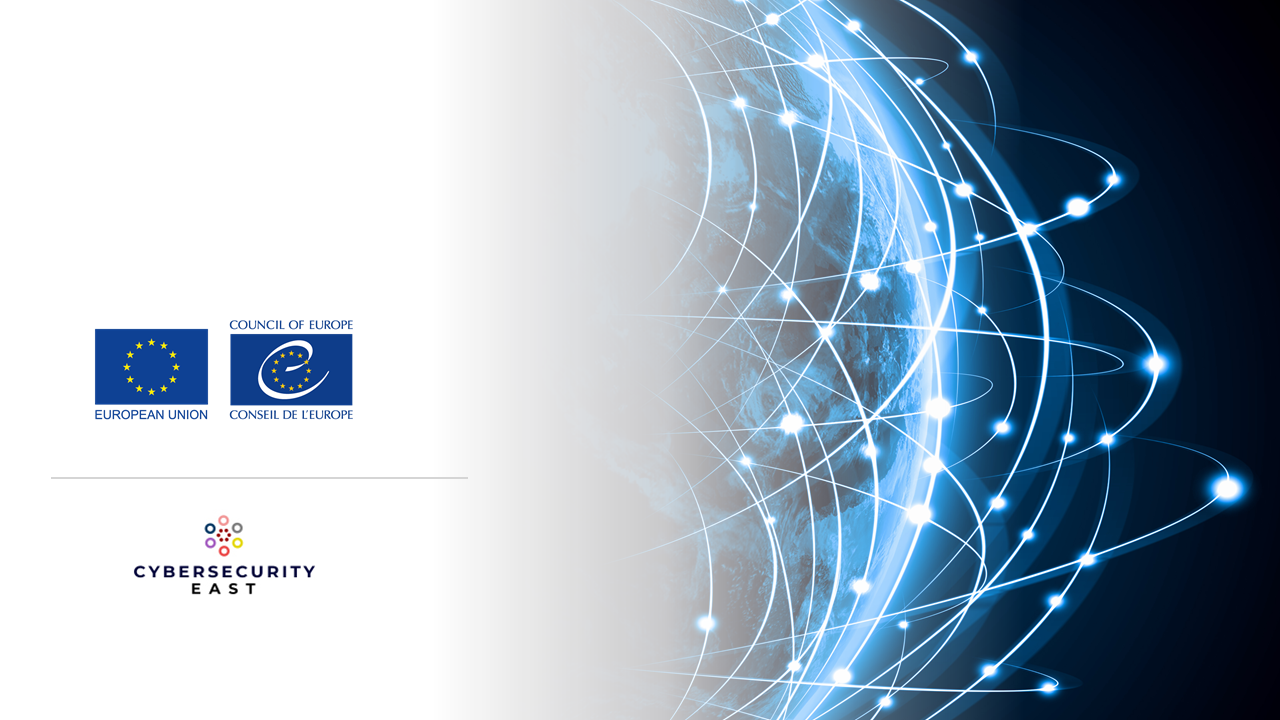

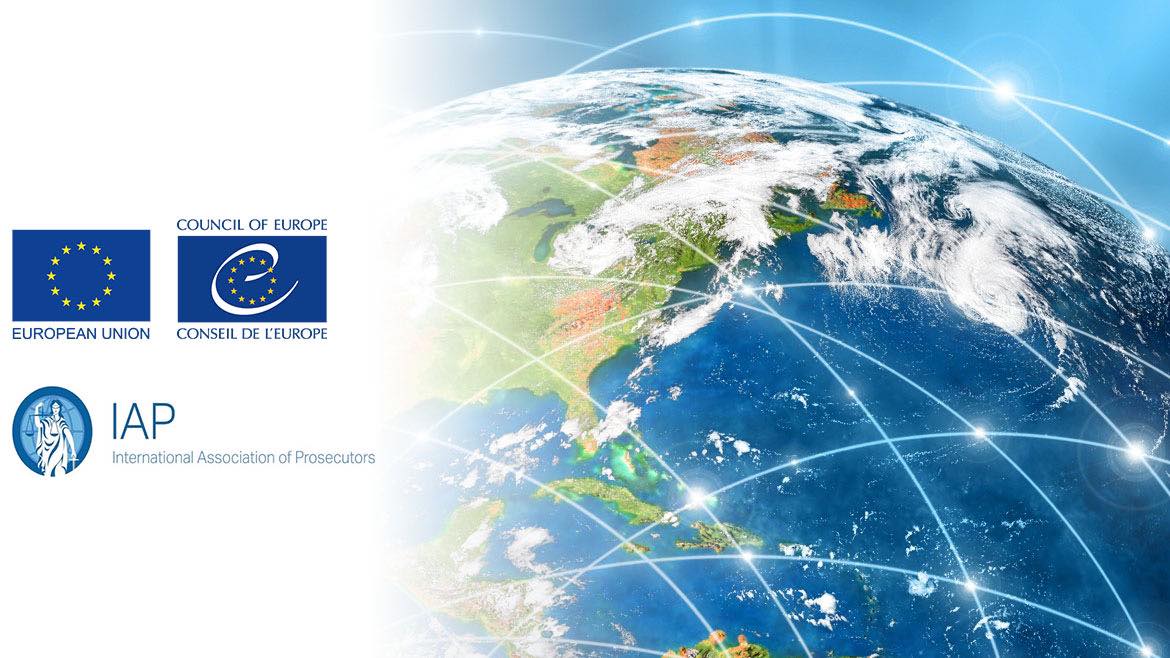
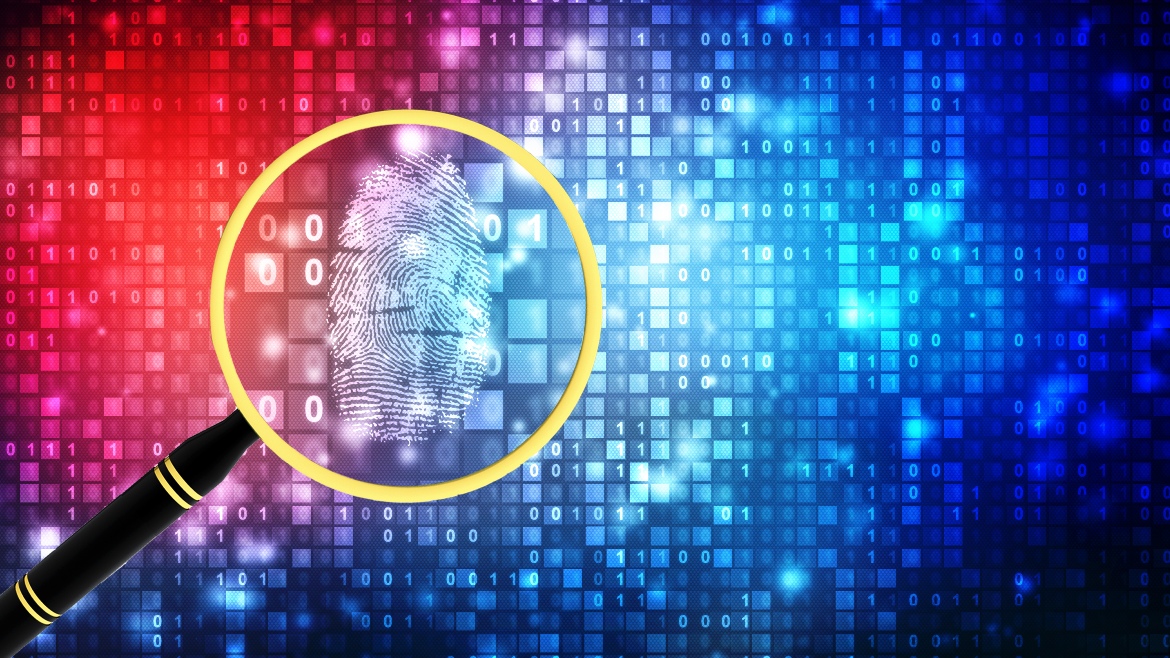





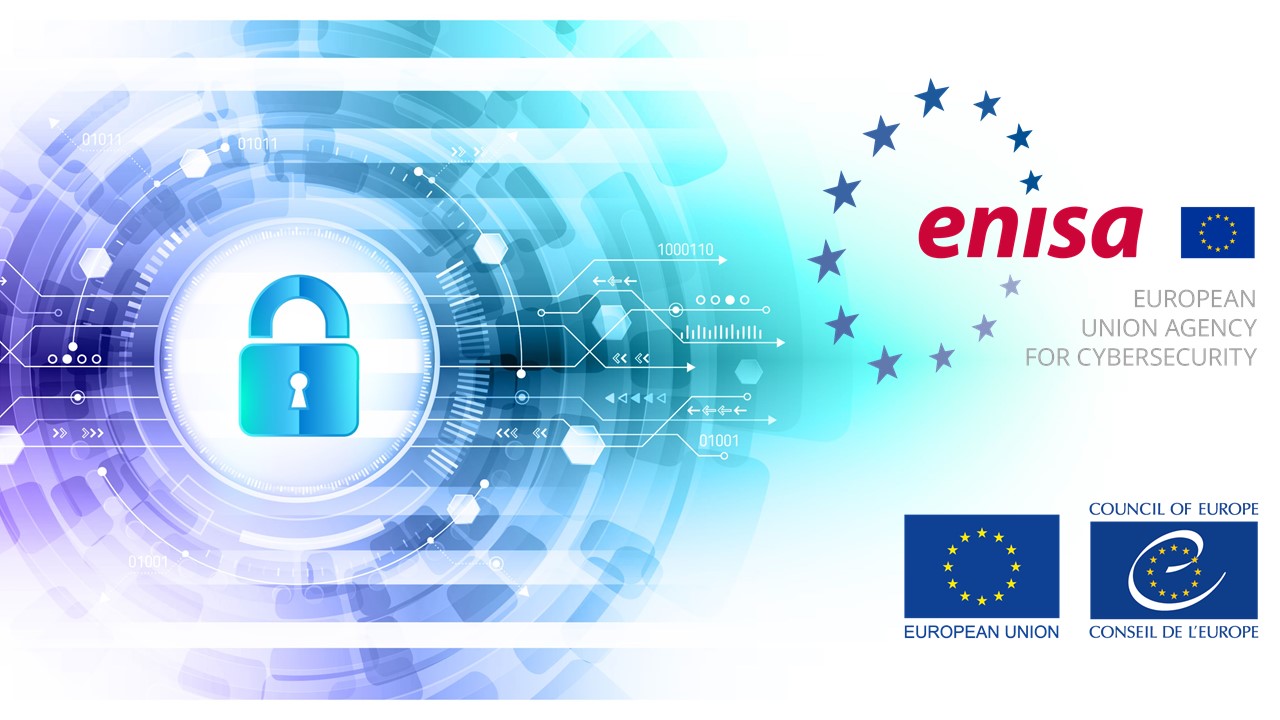
![Défis de la cybercriminalité au LATAM et dans les Caraïbes [ES]](/documents/8475493/54964831/webinar3_LATAM.jpg/6162c092-76aa-f4c2-64b8-b5529eb2f88b?t=1588599360000)

